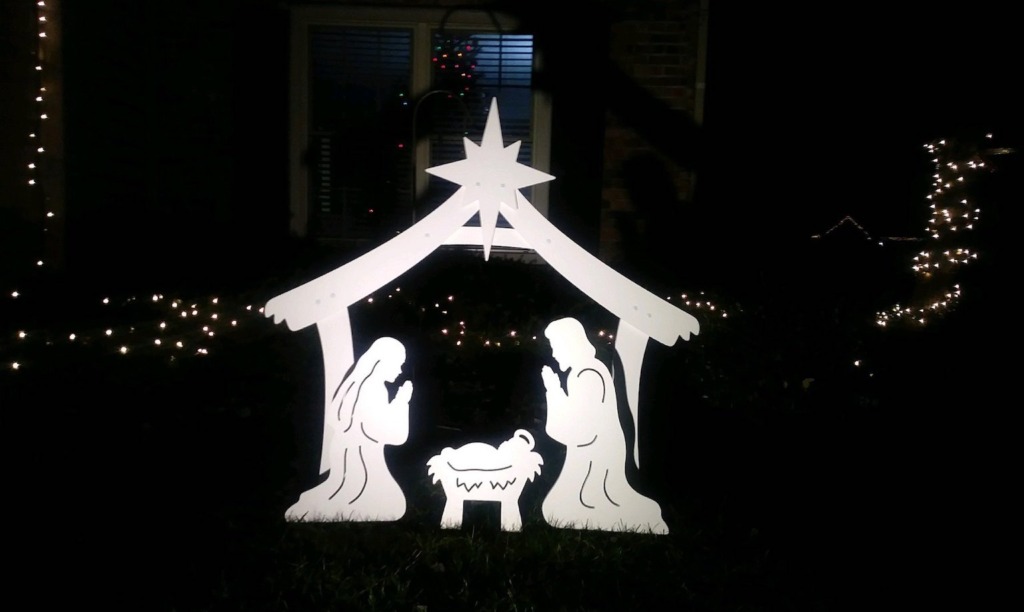Are you looking for the Lord this Christmas? Then consider casting your gaze closer to home than you might at first feel inclined to do, the Gospel of John seems to suggest in the immensely thought-provoking and highly familiar Gospel reading heard this Christmas Day during Masses in Catholic churches.
“In the beginning was the Word, and the Word was with God, and the Word was God,” the reading commences. Then, revealing why it is heard on Christmas, it proclaims:
“The Word became flesh and made his dwelling among us” (Jn 1:14).
Where did God’s incarnate Word make his dwelling? “Among us,” in this world, which we, alongside 8 billionothers, inhabit for better or worse. Inhabiting it “for better” is clearly what Christians have in mind on Christmas.
John’s Gospel in only a few words says so much about where to locate the Lord. Don’t forget to look for him here, among us.
It is a favorite theme of Pope Francis. In looking for the Lord, he counsels, don’t forget to direct your gaze toward others. Gaze also into the created universe, particularly planet Earth, which he calls “our common home.”
When looking for the Lord, many almost instinctively look upward and away from the commotion surrounding them. Pope Francis readily recognizes that prayerful, quiet time away from the world’s busyness is wonderful. But what if we also gaze outward, turning toward the people found there and their noisy environments?
Jesus cleared a way to recognizing “the face of God reflected in so many other faces,” Pope Francis observed in his 2018 apostolic exhortation on holiness today (“Gaudete et Exsultate”). “In every one of our brothers and sisters, especially the least, … God’s very image is found” (61).
Notably, the pope cautioned against claiming “to say where God is not, because God is mysteriously present in the life of every person, in a way that he himself chooses.” Actually, “even when someone’s life appears completely wrecked, even when we see it devastated by vices or addictions, God is present there” (42).
God is present in our planet’s surroundings too, the pope stresses. “Laudato Si’,” his 2015 encyclical on the environment, cited Brazil’s Catholic bishops in explaining “that nature as a whole not only manifests God but is also a locus of his presence. The Spirit of life dwells in every living creature and calls us to enter into relationship with him” (88).
The meaning of Christmas is profound. What is meant in saying that the Word of God “made his dwelling among us” is the very “stuff” of Christian prayer and reflection.
However, Christian history shows that this puzzled many over the centuries. Debates have raged about whether God’s Word became true flesh or how he could make his dwelling among the inhabitants of our earth, where evil is no stranger and crucifixion awaited him.
The message in John’s first chapter is all about the Lord. Yet, it extends a challenge. I’ll call it a Christmas challenge. It encourages us to inhabit our dwelling places for the better, whether by “dwelling place” we mean our personal household or the Earth, our common home.
Our dwelling places tend to be called homes. They are places of belonging, welcome, care and love.
Creating a home means learning “to feel connected to others … in such a way as to feel that our life is a bit more human,” Pope Francis said in “Christ Lives,” his 2019 apostolic exhortation directed principally to young people.
To create these strong bonds, he remarked, “requires confidence and trust nurtured daily by patience and forgiveness. And that is how the miracle takes place: We feel that here we are reborn … because we feel God’s caress that enables us to dream of a more human world, and therefore of a world more divine” (217).
Gibson served on Catholic News Service’s editorial staff for 37 years.

